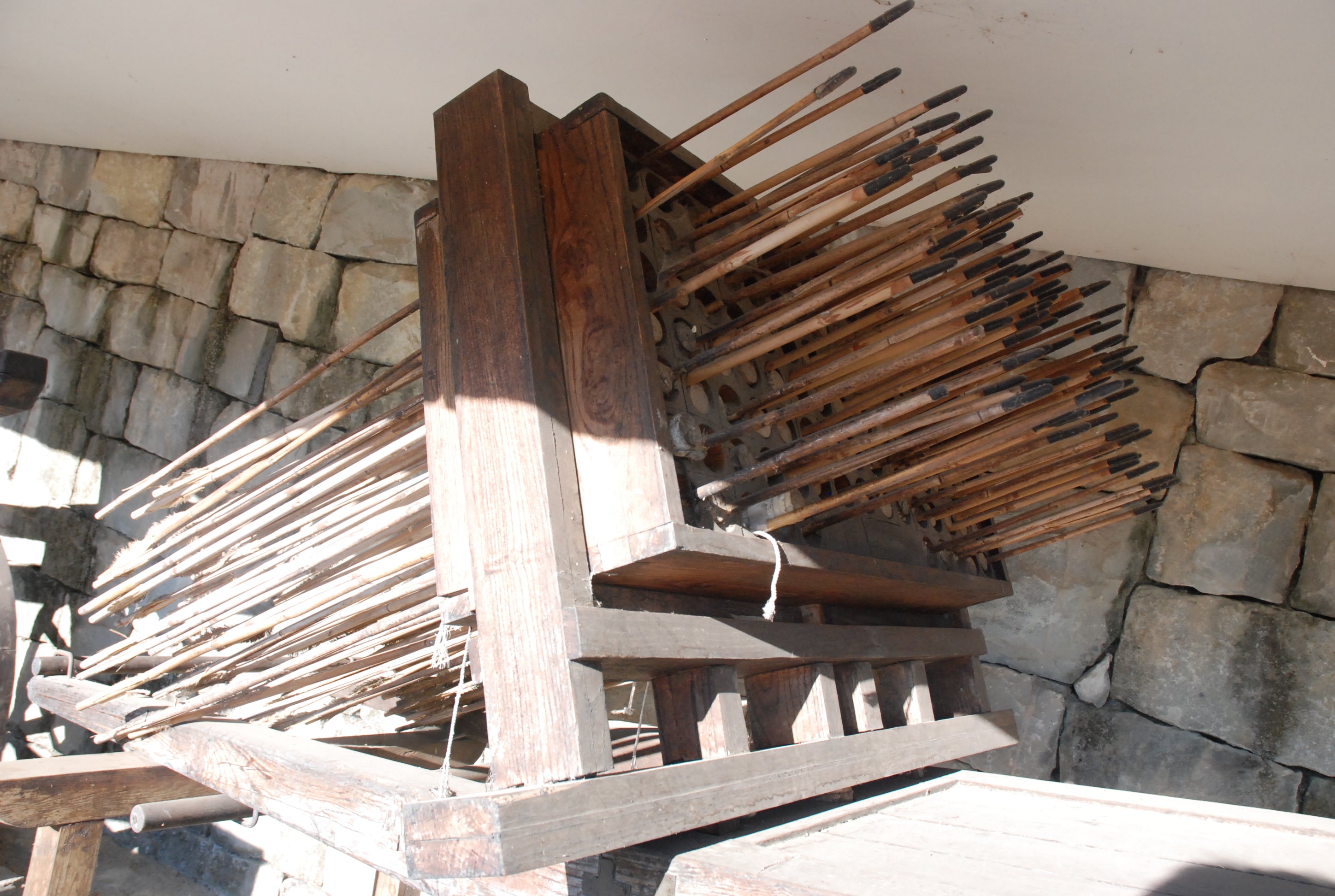Votre panier est vide


The Korean Peninsula has pioneered a variety of swords and weapons over the years. The jangchang, for instance, was a long spear developed in Korea hundreds of years ago. With a length of rough 10 feet, affixed with a 4-inch blade at the tip, it was used extensively for throwing and piercing attacks. However, a lesser known weapon developed on the Korean Peninsula was the singijeon. In this post, we're going to take a closer look at the singijeon, revealing five fast facts about this uniquely powerful traditional Korean weapon.
#1) It Means 'Magical Machine Arrows'
The term "singijeon" translates to "machine machine arrows." Of course, this definition sums up the Korean traditional weapon nicely. As depicted in the photo above, it features a barrage of arrows -- oftentimes dozens of arrows -- that overwhelm entire armies of opposing forces. At the time, the singijeon was an instrumental weapon that allowed Korean armies to engage large groups of opposing forces from a safe distance.
#2) It Required Gunpowder
For maximum power, the singijeon was fitted with a gunpowder fuse at the base of the arrows. During the latter half of the 14th century, however, only China had the knowledge of creating gunpowder. It wasn't 1376 when Korea bribed a Chinese merchant to provide them with the schematics for creating gunpowder. This paved the way for a new line of powerful weapons, including the singijeon.
#3) Some Were Handheld
Not all singijeon featured the large design as shown above. This weapon was constructed in a variety of sizes, the smallest of which could be held in a warrior's hand. These handheld singijeon featured a similar design as a gun, even including a fuse at the tip. Once lit, the fuse would burn and eventually spark the gunpowder, thereby projecting arrows from its base.
#4) It Fired Explosive Arrows
The arrows fired from the singijeon weren't traditional arrows used in bows. Although they look similar, they were typically fitted with additional black gunpowder. This allowed the arrows -- known as fire arrows -- to create an explosion upon impact. Korean armies would use the singijeon to rain these fire arrows down upon their enemies, with each impact triggering a large explosion that would damage infantry and enemy targets within a medium-size radius.
#5) It Was Long Forgotten
Although the singijeon was used by the Korean armies extensively throughout its history, it was largely forgotten over time. According to Wikipedia, historians just recently learned about the singijeon after discovering the weapon's schematics in a Korean military manual. The schematics revealed the singijeon to feature a wooden design with dozens of fire arrows and a gunpowder fuse.